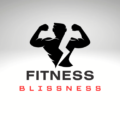
Weight Gain Diet Plan for Hard Gainers: Welcome to the ultimate guide on weight gain diet plans for hard gainers. Whether you’re tired of your skinny frame or looking to build more muscle, this guide is here to help. I want to assure you that gaining weight, though it may seem challenging, is entirely achievable with the right plan and your unwavering dedication. Let’s dive into the tips and tricks to help you gain the mass you’ve dreamed of.
***CLICK HERE FOR MY RECOMMENDED WEIGHT GAIN PROTEIN POWDER***
Understanding Your Caloric Needs
Before embarking on any weight gain diet plan, it’s crucial to understand your caloric needs. Your Basal Metabolic Rate (BMR) is the number of calories your body needs at rest to maintain vital functions like breathing and circulation. You can use online calculators or the Harris-Benedict equation, which factors in your age, sex, height, and weight. Knowing your BMR helps you determine the minimum number of calories you need to consume to avoid losing weight, setting a foundation for your weight gain diet plan.
Once you’ve figured out your BMR, the next step is to increase your caloric intake. Remember, it’s a marathon, not a sprint. Start by adding a modest 300-500 extra calories per day to your diet.
Remember, slow and steady wins the race when it comes to increasing your caloric intake. A gradual increase, such as adding 300-500 extra calories per day, allows your body to adapt to the higher intake without causing digestive issues. It’s like training your body to handle more. Keep track of your weight weekly. If you’re not seeing any changes after a couple of weeks, it’s time to up your game.
Increase your caloric intake by another 300-500 calories. Consistency is key. Spread your caloric intake across multiple meals and snacks throughout the day to ensure a steady supply of nutrients.
Eating more doesn’t mean eating anything and everything. It’s about quality, not just quantity. Focus on nutrient-dense foods to make those extra calories count. Incorporate whole foods like lean meats, whole grains, fruits, and vegetables. These foods provide essential nutrients and energy without unnecessary additives. Foods rich in healthy fats, such as avocados, nuts, seeds, and olive oil, are calorie-dense and packed with essential fatty acids.
Opt for complex carbohydrates like brown rice, oats, and sweet potatoes to provide sustained energy and support muscle growth. To effectively increase your caloric intake, aim for frequent meals and snacks. Try to eat every 2-3 hours. This ensures a constant influx of nutrients and prevents you from feeling overly full at any one meal.
Keep high-calorie snacks like trail mix, protein bars, and yogurt on hand for quick, nutrient-dense snacks between meals. Plan and prepare your meals in advance to avoid missing meals or relying on less nutritious options when you’re hungry. Hydration plays a vital role in your weight gain diet plan. Drink plenty of water throughout the day. Hydration is essential for digestion, nutrient absorption, and muscle function.
Limit consumption of sodas and other sugary drinks that add calories without nutritional value. Instead, opt for water, milk, and natural juices. Include hydrating foods like cucumbers, watermelon, and oranges in your diet to help meet your fluid needs.
Building a Balanced Diet
***CLICK HERE FOR MY RECOMMENDED WEIGHT GAIN PROTEIN POWDER***

Protein is essential for muscle growth and repair, making it a cornerstone of any weight gain diet plan. Incorporate a variety of protein sources such as chicken, beef, fish, eggs, and plant-based options like beans, lentils, and tofu. Distribute your protein intake evenly across all meals to optimize muscle protein synthesis throughout the day.
Consider protein shakes or powders to help meet your daily protein requirements, especially if you struggle to get enough from whole foods alone. Carbohydrates are your body’s primary energy source, crucial for fueling workouts and daily activities. Focus on complex carbohydrates like whole grains, legumes, and vegetables, which provide sustained energy and essential nutrients.
Consume carbohydrates before and after workouts to fuel your exercise and support muscle recovery. Incorporate a variety of carbohydrate sources to ensure a broad spectrum of nutrients and to keep meals interesting.
Fats are more calorie-dense than protein or carbs, making them vital for a weight gain diet plan. Include foods like avocados, nuts, seeds, fatty fish, and olive oil to boost your calorie intake and provide essential fatty acids. Add healthy fats to meals and snacks, such as nut butter on toast, olive oil in salads, and avocado in smoothies. Ensure fats complement other macronutrients in your diet for a balanced and nutritious approach to gaining weight.
Micronutrients play a crucial role in overall health and support the effectiveness of your weight gain diet plan. Eat a variety of fruits and vegetables to ensure you’re getting a wide range of vitamins and minerals. Consider taking a multivitamin or specific supplements if you have known deficiencies or struggle to get enough from your diet.
For nutrient intake, prioritize whole foods over supplements, as they provide additional benefits like fiber and antioxidants. Hydration isn’t just about water but also electrolytes and overall fluid balance. Ensure you’re getting enough electrolytes, especially if you sweat a lot during workouts.
Include foods like bananas, spinach, and yogurt in your diet. In addition to water, drink beverages that contribute to hydration, such as herbal teas, milk, and coconut water. Check your urine color as a simple way to monitor your hydration status. Aim for a light yellow color.
Effective Meal Planning
***CLICK HERE FOR MY RECOMMENDED WEIGHT GAIN PROTEIN POWDER***

Start your day with a hearty, nutrient-packed breakfast to kickstart your metabolism and set the tone for the day. Include eggs, Greek yogurt, or protein smoothies to ensure a high-protein start to your day. Add whole grains like oats, whole wheat toast, or fruit for sustained energy. Add nuts, seeds, or avocado to your breakfast for a calorie-dense meal that energizes you. Midday meals should be balanced and substantial to keep your energy levels high. Choose options like grilled chicken, fish, or tofu for a muscle-building protein boost. Include quinoa, brown rice, or sweet potatoes for long-lasting energy. Add a variety of colorful vegetables to your lunch for essential vitamins, minerals, and fiber.
Dinner should be nutrient-dense and filling, providing energy for overnight muscle repair and growth. Opt for lean meats, legumes, or fish to meet your protein needs. Include brown rice, barley, or whole wheat pasta to provide complex carbohydrates.
Incorporate healthy fats like olive oil, nuts, or fatty fish for additional calories and nutrients. Snacking is an opportunity to sneak in extra calories and nutrients between meals. For a quick protein boost, keep snacks like Greek yogurt, cottage cheese, or protein bars on hand. Choose calorie-dense snacks like trail mix, nut butter, or cheese to add extra calories without too much volume. Opt for whole-food snacks over processed options to ensure you’re getting quality nutrients.
Proper nutrition around your workouts can enhance your performance and recovery. Consume a mix of protein and carbs about 30-60 minutes before your workout to fuel your exercise session. After your workout, aim for a meal or snack rich in protein and carbs to replenish glycogen stores and support muscle repair. Ensure you’re well-hydrated before, during, and after your workouts to maintain performance and aid recovery.
Supplements for Weight Gain
***CLICK HERE FOR MY RECOMMENDED WEIGHT GAIN PROTEIN POWDER***
Protein supplements can help you meet your daily protein requirements, especially if you find it challenging to get enough from whole foods. Choose from whey, casein, or plant-based protein powders based on your dietary preferences and needs.
Protein shakes are quick and convenient, making them an excellent option for busy schedules or post-workout nutrition. Opt for high-quality protein powders with minimal additives and fillers for the best results. Weight gainer supplements are specifically designed to provide a high-calorie, nutrient-dense option for those struggling to gain weight.
Weight gainers are typically rich in carbohydrates, proteins, and fats, significantly boosting calories. Use weight gainers as a supplement to your diet, not a replacement for whole foods. They can be particularly useful if you’re struggling to meet your caloric goals through food alone. Choose a weight gainer that is easy to digest and doesn’t cause discomfort or digestive issues.
Creatine is a well-researched supplement that can enhance muscle mass and strength. Creatine helps increase muscle mass, improve strength, and enhance exercise performance. A typical dosage is 5 grams daily, usually taken post-workout for best absorption.
Creatine is generally safe for most people when used as directed. Ensure you’re well-hydrated when taking creatine to prevent any potential side effects. Branched-chain amino Acids (BCAAs) can support muscle protein synthesis and reduce muscle soreness, aiding your weight gain efforts.
BCAAs include leucine, isoleucine, and valine, essential amino acids that play a crucial role in muscle building. They help reduce muscle breakdown during exercise and promote muscle recovery post-workout. Take BCAAs before, during, or after your workout to maximize their benefits.
A high-quality multivitamin can help fill any nutritional gaps in your diet, ensuring you get all the essential vitamins and minerals needed for overall health and muscle growth. Look for a multivitamin that covers all essential nutrients and is tailored to your specific needs, such as one designed for athletes or those with high physical activity levels.
Multivitamins should complement a balanced diet, not replace it. Ensure you focus on getting most of your nutrients from whole foods. Choose reputable brands and follow the recommended dosage to avoid potentially overdosing on certain vitamins and minerals.
Lifestyle Tips for Hard Gainers
***CLICK HERE FOR MY RECOMMENDED WEIGHT GAIN PROTEIN POWDER***
A consistent eating schedule can help you meet your caloric needs and maintain steady energy levels. Plan your meals and snacks around your daily schedule to ensure you never miss an opportunity to fuel your body.
Prepare meals and snacks in advance to avoid relying on less nutritious, convenient options when you’re busy. Stick to a routine to train your body to expect regular food intake, which can help regulate your metabolism and hunger cues.
Strength training is crucial for building muscle mass and complementing your weight gain diet plan. Focus on compound exercises like squats, deadlifts, bench presses, and rows, which work multiple muscle groups simultaneously and promote overall muscle growth.
Gradually increase the weight and intensity of your workouts to challenge your muscles and stimulate growth continuously. Allow adequate rest between workouts to let your muscles recover and grow. Aim for at least one to two rest days per week.
Proper sleep and recovery are vital components of a successful weight gain plan. Aim for 7-9 hours of quality sleep each night to support muscle recovery and overall health. Incorporate rest days into your workout routine to prevent overtraining and allow your body to repair and grow muscle tissue. Manage stress through activities like yoga, meditation, or hobbies to ensure your body is optimal for muscle growth and weight gain.
Tracking your progress can help you stay motivated and make necessary adjustments to your weight gain diet plan. Weigh yourself weekly and record your progress. Look for a gradual increase in weight over time.
Keep a food journal to track your daily caloric intake and ensure you meet your nutritional goals. Record your workouts, including exercises, sets, reps, and weights, to monitor your strength gains and make necessary adjustments to your training plan.
Gaining weight and building muscle is a gradual process that requires patience and persistence. Set realistic, achievable goals and celebrate small victories along the way to stay motivated. Stick to your weight gain diet plan and exercise routine consistently, even when progress seems slow. Be flexible and willing to adjust your plan as needed based on your progress and any changes in your lifestyle or goals.
Conclusion
In conclusion, gaining weight as a hard gainer can be a challenging but rewarding journey. You can achieve your weight gain goals by understanding your caloric needs, building a balanced diet, effectively planning your meals, incorporating the right supplements, and adopting supportive lifestyle habits.
Remember, consistency, patience, and persistence are key. With the right weight gain diet plan and dedication, you’ll be well on your way to increasing your mass and building the body you desire. So, get started today and enjoy the journey to a healthier, stronger you!
Disclaimers:
The information provided in this article is for educational and informational purposes only and is not intended as medical advice. Always consult your physician or a qualified healthcare professional before starting any new nutritional or fitness plan to ensure it is appropriate for your specific health needs and conditions. The content in this blog should not be used as a substitute for professional medical advice, diagnosis, or treatment.
Amazon Disclaimer: I participate in the Amazon Services LLC Associates Program, an affiliate advertising program designed to provide a means for sites to earn advertising fees by advertising and linking to Amazon.com.
As an Amazon Associate, I earn from qualifying purchases. This means that if you click on an affiliate link and make a purchase, I may receive a commission at no extra cost to you. Please note that I only recommend products or services that I personally use and/or believe will add value to my readers. Thank you for your support.
- Top 10 Well-being Nutrition Tips for a Balanced Lifestyle - July 29, 2024
- How Boot Camp Workouts Can Help You Shed Pounds Fast - July 3, 2024
- Boost Your Immunity with Green Apple Nutrition - June 23, 2024
